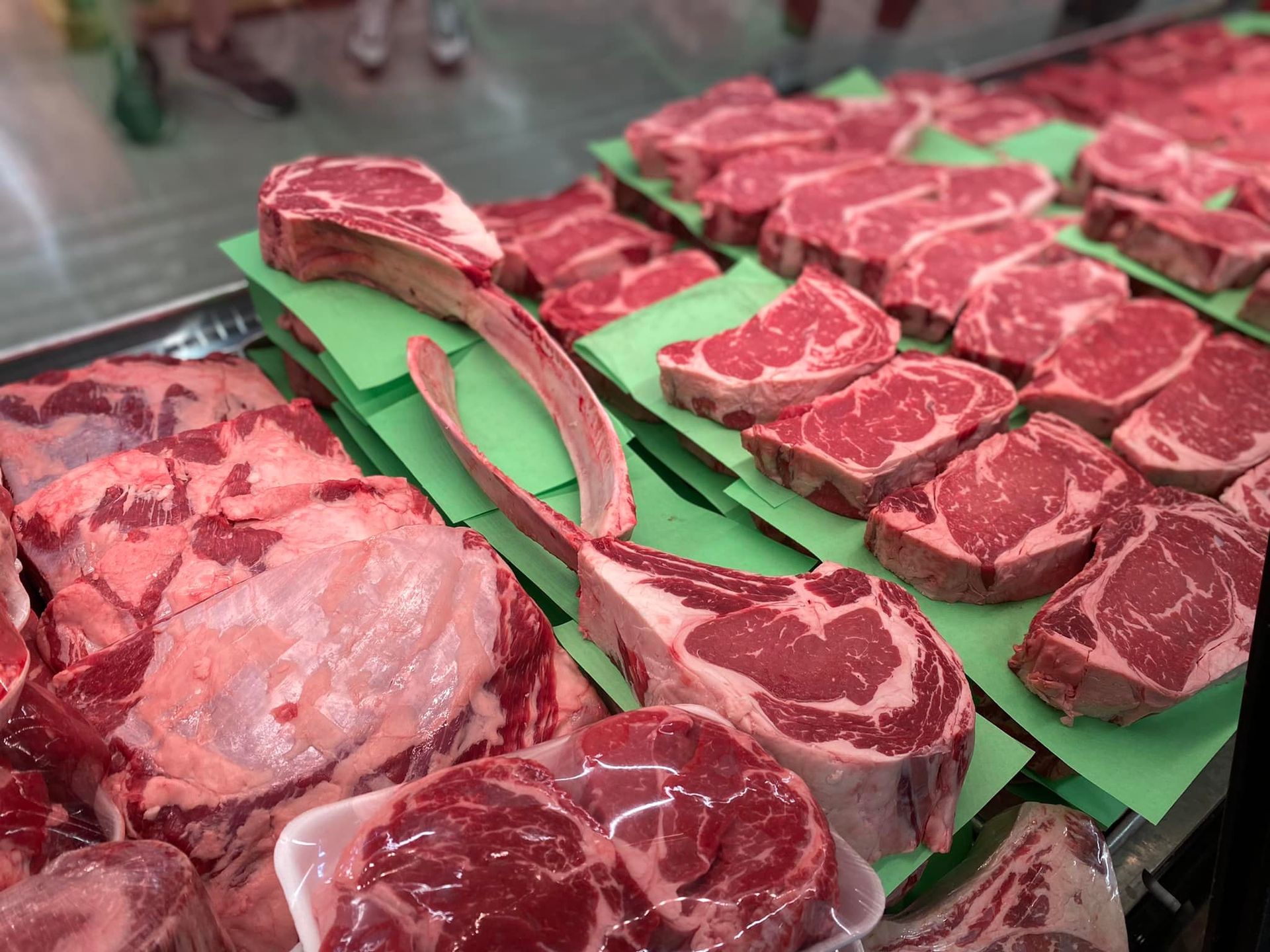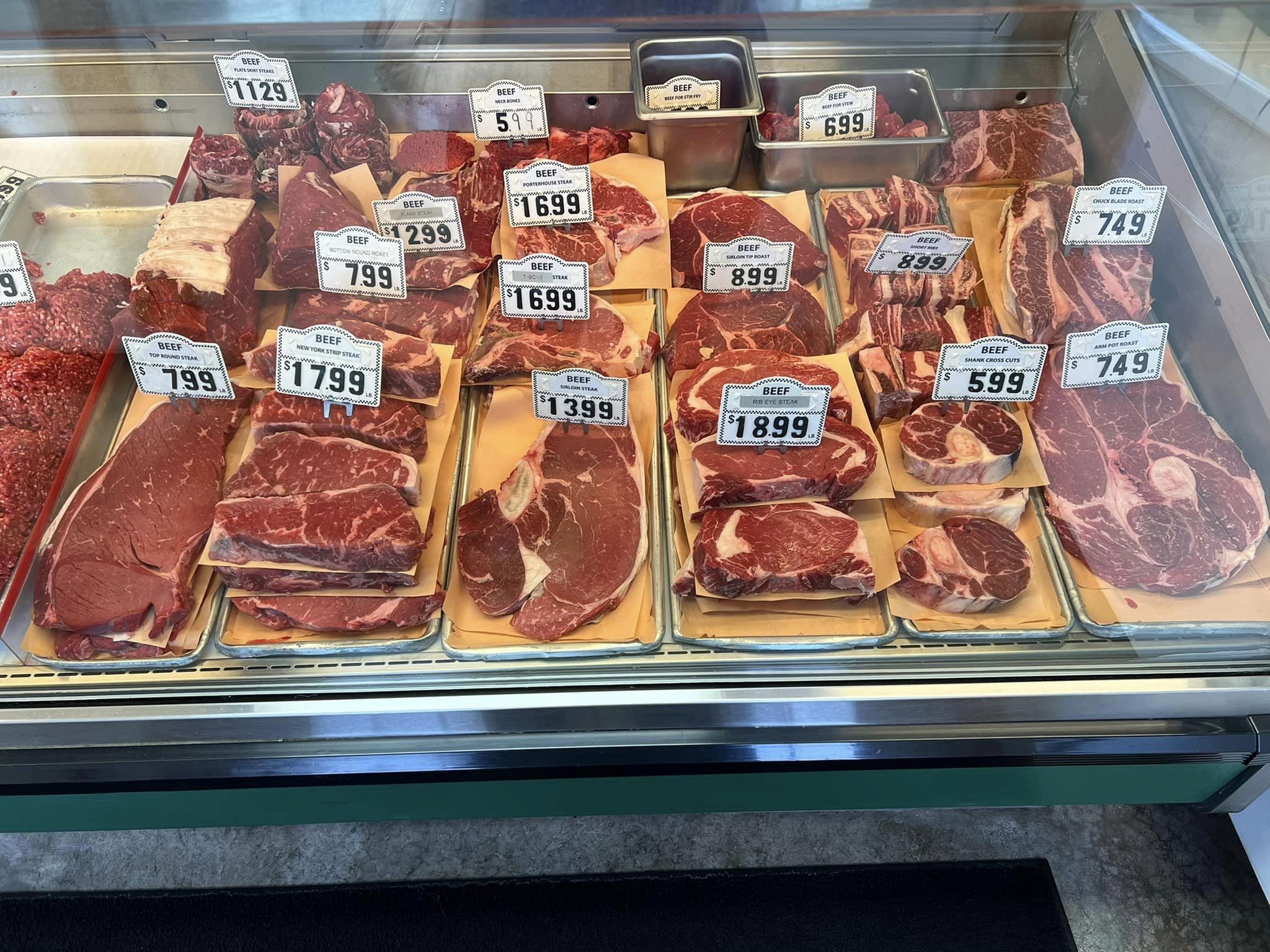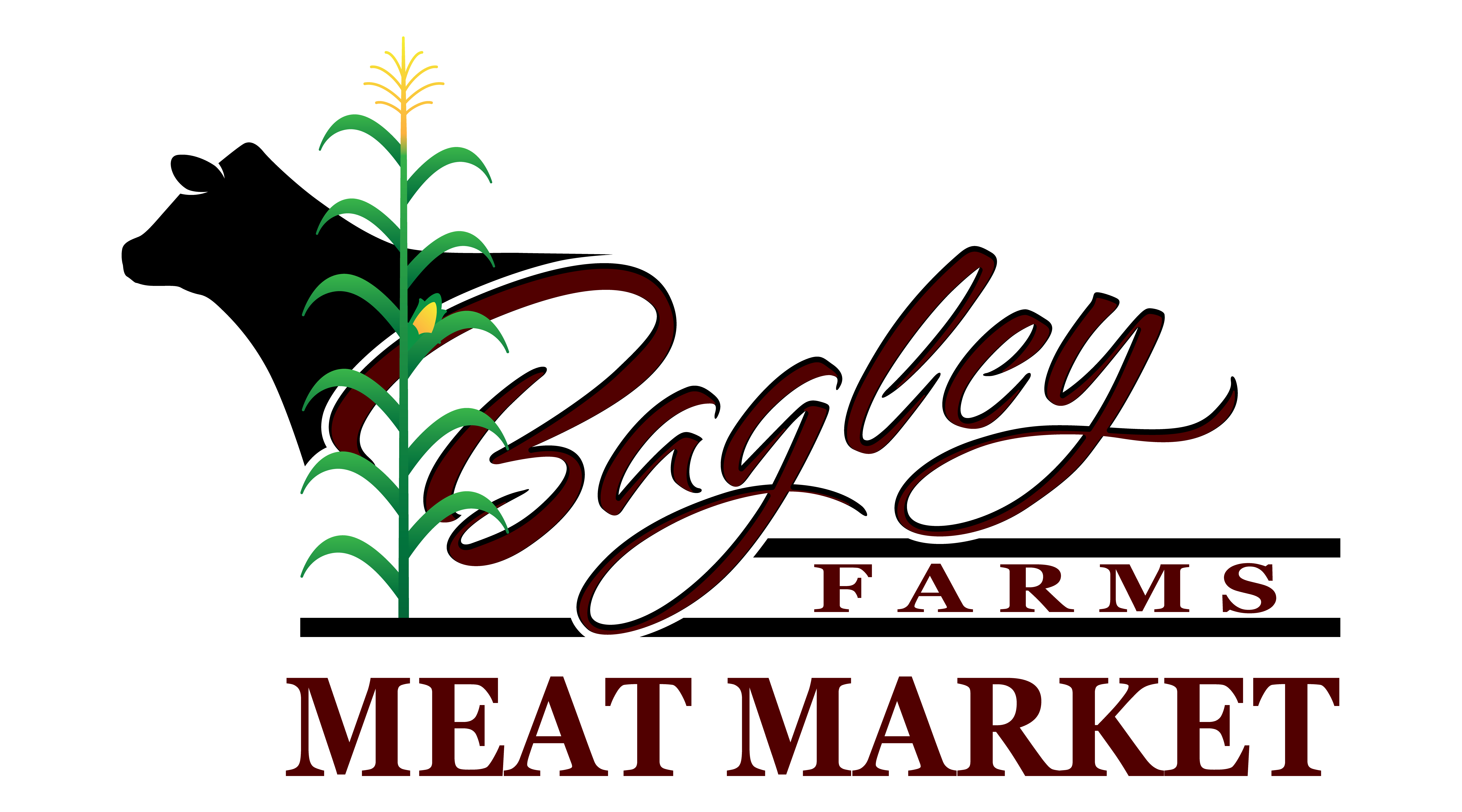Why Buying at a Local Meat Market Guarantees Fresh, High-Quality Cuts
Buying at a neighborhood meat market uses distinctive advantages that usually go undetected by customers accustomed to bigger retail chains. The effects of choosing neighborhood expand past instant benefits, triggering a closer evaluation of what this choice genuinely indicates for both consumers and the local economic situation.
Advantages of Neighborhood Sourcing
In the world of food purchase, the advantages of neighborhood sourcing stand apart prominently. By acquiring meat from regional markets, customers obtain straight accessibility to products that are commonly fresher and much more savory than those discovered in larger, commercial grocery stores. Neighborhood sourcing decreases the moment and distance food takes a trip from ranch to table, which not just improves preference yet also protects dietary worth.

Moreover, neighborhood sourcing often offers openness concerning the origins of the meat. Consumers can ask about the farming practices used, animal well-being standards, and whether the meat is organic or grass-fed. This info empowers buyers to make enlightened decisions lined up with their worths.
Quality Assurance Standards
Neighborhood meat markets often stick to rigorous quality control requirements that guarantee the items supplied fulfill high security and freshness benchmarks. These criteria usually incorporate various phases of the meat production process, from sourcing to handling and storage.
First, local markets typically establish stringent vendor requirements, ensuring that only reliable ranches and manufacturers are utilized - bagley meat market edwardsville il. This lowers the likelihood of contamination and advertises greater pet welfare criteria. Furthermore, lots of local meat markets implement routine examinations to confirm that the meat is refined under hygienic problems, additionally minimizing health and wellness risks
Temperature level control is one more crucial element of quality guarantee. Local meat markets frequently check refrigeration systems to keep ideal storage temperatures, making sure that meat remains fresh and safe for usage. Furthermore, the execution of traceability systems enables markets to track the beginning of their items, giving openness and accountability.
Lastly, personnel at local meat markets are often trained to acknowledge indications of perishing and comprehend correct handling techniques. This dedication to quality control not only elevates the general standard of the meat but also promotes consumer trust, making local meat markets a dependable source for top quality cuts.
Sustaining Local Farmers
Supporting regional farmers is necessary for promoting a sustainable food system and enhancing area strength. When consumers pick to patronize local meat markets, they straight add to the source of incomes of farmers in their area. This not just supports the neighborhood economic climate yet likewise reinforces the farming market, ensuring that it stays vivid and viable.


Additionally, sustaining local farmers promotes a feeling of see post neighborhood and connection in between producers and consumers. It encourages openness in food sourcing and instills depend on, as customers can develop partnerships with the individuals who increase their food. This straight link inevitably brings about a much more involved and educated public, which is vital for promoting for lasting farming techniques in the future.
Sustainable Practices
Lasting techniques in meat markets play an important role in advertising ecological stewardship and making see it here certain pet well-being. Local meat markets frequently prioritize sourcing their products from ranches that carry out ethical and sustainable farming techniques. These practices include rotational grazing, which assists maintain dirt health and wellness and decreases carbon exhausts, along with decreasing the use of antibiotics and hormonal agents in animals.
Furthermore, neighborhood meat markets commonly stress openness in their supply chains. Consumers are provided with information regarding the beginning of their meat, permitting them to make enlightened choices that line up with their values. By sustaining neighborhood farmers who practice sustainable techniques, consumers add to the preservation of biodiversity and the reduction of transport exhausts linked with long-distance meat distribution.
In addition, many neighborhood meat markets involve in waste decrease approaches, such as utilizing every component of the pet and advertising off-cuts that could otherwise go unsold. By cultivating an extra sustainable approach to meat consumption, these markets not only supply premium items however likewise add favorably to the setting and animal welfare. In significance, purchasing at a neighborhood meat market straightens consumers with a broader motion towards moral and responsible food sourcing.
Personalized Customer Support
Buying at a meat market often encompasses more than just the items offered; it is likewise concerning the experience and the relationships constructed between consumers and team. Individualized consumer service is a characteristic of neighborhood meat markets, establishing them apart from larger grocery store chains. Knowledgeable personnel make the effort to comprehend private consumer preferences, making certain that each see is tailored to details needs.
Customers benefit from professional recommendations on cuts, food preparation techniques, and preparation tips, promoting a feeling of trust and commitment. This individualized communication allows consumers to ask you can find out more questions and seek recommendations, bring about educated acquiring choices. Employee typically bear in mind normal consumers and their preferences, producing a welcoming environment that grows community connections.
Additionally, customized solution includes special demands, such as customized cuts or details prep work methods, which bigger sellers might not fit. This degree of attention enhances the commitment of regional meat markets to top quality and client fulfillment.
Fundamentally, customized customer care not just boosts the shopping experience however also makes sure that consumers entrust the most effective items fit to their cooking needs, making every see a rewarding one.
Verdict
Sustaining regional farmers promotes community relationships and strengthens the regional economic situation, while sustainable techniques contribute to environmental stewardship. Additionally, customized client service improves the buying experience, making local meat markets a favored choice for consumers looking for both high quality and ethical considerations in their food sourcing.
The effects of selecting regional prolong past prompt benefits, triggering a closer exam of what this selection really indicates for both customers and the regional economic situation.
Sustaining regional meat markets also adds to the neighborhood economic climate. Regional meat markets often keep track of refrigeration systems to maintain ideal storage space temperature levels, making certain that meat continues to be fresh and secure for consumption.Local farmers are commonly more attuned to the particular requirements of their areas, growing crops and increasing livestock that align with neighborhood preferences and choices. Supporting regional farmers cultivates community partnerships and strengthens the regional economy, while sustainable methods add to ecological stewardship.